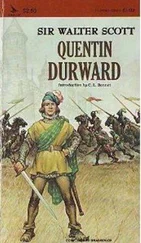Walter Scott - Letters on Demonology and Witchcraft
Здесь есть возможность читать онлайн «Walter Scott - Letters on Demonology and Witchcraft» весь текст электронной книги совершенно бесплатно (целиком полную версию без сокращений). В некоторых случаях можно слушать аудио, скачать через торрент в формате fb2 и присутствует краткое содержание. Жанр: История, на английском языке. Описание произведения, (предисловие) а так же отзывы посетителей доступны на портале библиотеки ЛибКат.
- Название:Letters on Demonology and Witchcraft
- Автор:
- Жанр:
- Год:неизвестен
- ISBN:нет данных
- Рейтинг книги:4 / 5. Голосов: 1
-
Избранное:Добавить в избранное
- Отзывы:
-
Ваша оценка:
- 80
- 1
- 2
- 3
- 4
- 5
Letters on Demonology and Witchcraft: краткое содержание, описание и аннотация
Предлагаем к чтению аннотацию, описание, краткое содержание или предисловие (зависит от того, что написал сам автор книги «Letters on Demonology and Witchcraft»). Если вы не нашли необходимую информацию о книге — напишите в комментариях, мы постараемся отыскать её.
Letters on Demonology and Witchcraft — читать онлайн бесплатно полную книгу (весь текст) целиком
Ниже представлен текст книги, разбитый по страницам. Система сохранения места последней прочитанной страницы, позволяет с удобством читать онлайн бесплатно книгу «Letters on Demonology and Witchcraft», без необходимости каждый раз заново искать на чём Вы остановились. Поставьте закладку, и сможете в любой момент перейти на страницу, на которой закончили чтение.
Интервал:
Закладка:
It is the same with all those that are called accredited ghost stories usually told at the fireside. They want evidence. It is true that the general wish to believe, rather than power of believing, has given some such stories a certain currency in society. I may mention, as one of the class of tales I mean, that of the late Earl St. Vincent, who watched, with a friend, it is said, a whole night, in order to detect the cause of certain nocturnal disturbances which took place in a certain mansion. The house was under lease to Mrs. Ricketts, his sister. The result of his lordship's vigil is said to have been that he heard the noises without being able to detect the causes, and insisted on his sister giving up the house. This is told as a real story, with a thousand different circumstances. But who has heard or seen an authentic account from Earl St. Vincent, or from his "companion of the watch," or from his lordship's sister? And as in any other case such sure species of direct evidence would be necessary to prove the facts, it seems unreasonable to believe such a story on slighter terms. When the particulars are precisely fixed and known, it might be time to enquire whether Lord St. Vincent, amid the other eminent qualities of a first-rate seaman, might not be in some degree tinged with their tendency to superstition; and still farther, whether, having ascertained the existence of disturbances not immediately or easily detected, his lordship might not advise his sister rather to remove than to remain in a house so haunted, though he might believe that poachers or smugglers were the worst ghosts by whom it was disturbed.
The story of two highly respectable officers in the British army, who are supposed to have seen the spectre of the brother of one of them in a hut, or barrack, in America, is also one of those accredited ghost tales, which attain a sort of brevet rank as true, from the mention of respectable names as the parties who witnessed the vision. But we are left without a glimpse when, how, and in what terms, this story obtained its currency; as also by whom, and in what manner, it was first circulated; and among the numbers by whom it has been quoted, although all agree in the general event, scarcely two, even of those who pretend to the best information, tell the story in the same way.
Another such story, in which the name of a lady of condition is made use of as having seen an apparition in a country-seat in France, is so far better borne out than those I have mentioned, that I have seen a narrative of the circumstances attested by the party principally concerned. That the house was disturbed seems to be certain, but the circumstances (though very remarkable) did not, in my mind, by any means exclude the probability that the disturbance and appearances were occasioned by the dexterous management of some mischievously-disposed persons.
The remarkable circumstance of Thomas, the second Lord Lyttelton, prophesying his own death within a few minutes, upon the information of an apparition, has been always quoted as a true story. But of late it has been said and published, that the unfortunate nobleman had previously determined to take poison, and of course had it in his own power to ascertain the execution of the prediction. It was no doubt singular that a man, who meditated his exit from the world, should have chosen to play such a trick on his friends. But it is still more credible that a whimsical man should do so wild a thing, than that a messenger should be sent from the dead to tell a libertine at what precise hour he should expire.
To this list other stories of the same class might be added. But it is sufficient to show that such stories as these, having gained a certain degree of currency in the world, and bearing creditable names on their front, walk through society unchallenged, like bills through a bank when they bear respectable indorsations, although, it may be, the signatures are forged after all. There is, indeed, an unwillingness very closely to examine such subjects, for the secret fund of superstition in every man's bosom is gratified by believing them to be true, or at least induces him to abstain from challenging them as false. And no doubt it must happen that the transpiring of incidents, in which men have actually seen, or conceived that they saw, apparitions which were invisible to others, contributes to the increase of such stories—which do accordingly sometimes meet us in a shape of veracity difficult to question.
The following story was narrated to me by my friend, Mr. William Clerk, chief clerk to the Jury Court, Edinburgh, when he first learned it, now nearly thirty years ago, from a passenger in the mail-coach. With Mr. Clerk's consent, I gave the story at that time to poor Mat Lewis, who published it with a ghost-ballad which he adjusted on the same theme. From the minuteness of the original detail, however, the narrative is better calculated for prose than verse; and more especially as the friend to whom it was originally communicated is one of the most accurate, intelligent, and acute persons whom I have known in the course of my life, I am willing to preserve the precise story in this place.
It was about the eventful year 1800, when the Emperor Paul laid his ill-judged embargo on British trade, that my friend Mr. William Clerk, on a journey to London, found himself in company, in the mail-coach, with a seafaring man of middle age and respectable appearance, who announced himself as master of a vessel in the Baltic trade, and a sufferer by the embargo. In the course of the desultory conversation which takes place on such occasions the seaman observed, in compliance with a common superstition, "I wish we may have good luck on our journey—there is a magpie." "And why should that be unlucky?" said my friend. "I cannot tell you that," replied the sailor; "but all the world agrees that one magpie bodes bad luck—two are not so bad, but three are the devil. I never saw three magpies but twice, and once I had near lost my vessel, and the second I fell from a horse, and was hurt." This conversation led Mr. Clerk to observe that he supposed he believed also in ghosts, since he credited such auguries. "And if I do," said the sailor, "I may have my own reasons for doing so;" and he spoke this in a deep and serious manner, implying that he felt deeply what he was saying. On being further urged, he confessed that, if he could believe his own eyes, there was one ghost at least which he had seen repeatedly. He then told his story as I now relate it.
Our mariner had in his youth gone mate of a slave vessel from Liverpool, of which town he seemed to be a native. The captain of the vessel was a man of a variable temper, sometimes kind and courteous to his men, but subject to fits of humour, dislike, and passion, during which he was very violent, tyrannical, and cruel. He took a particular dislike at one sailor aboard, an elderly man, called Bill Jones, or some such name. He seldom spoke to this person without threats and abuse, which the old man, with the license which sailors take on merchant vessels, was very apt to return. On one occasion Bill Jones appeared slow in getting out on the yard to hand a sail. The captain, according to custom, abused the seaman as a lubberly rascal, who got fat by leaving his duty to other people. The man made a saucy answer, almost amounting to mutiny, on which, in a towering passion, the captain ran down to his cabin, and returned with a blunderbuss loaded with slugs, with which he took deliberate aim at the supposed mutineer, fired, and mortally wounded him. The man was handed down from the yard, and stretched on the deck, evidently dying. He fixed his eyes on the captain, and said, "Sir, you have done for me, but I will never leave you " The captain, in return, swore at him for a fat lubber, and said he would have him thrown into the slave-kettle, where they made food for the negroes, and see how much fat he had got. The man died. His body was actually thrown into the slave-kettle, and the narrator observed, with a naïveté which confirmed the extent of his own belief in the truth of what he told, "There was not much fat about him after all."
Читать дальшеИнтервал:
Закладка:
Похожие книги на «Letters on Demonology and Witchcraft»
Представляем Вашему вниманию похожие книги на «Letters on Demonology and Witchcraft» списком для выбора. Мы отобрали схожую по названию и смыслу литературу в надежде предоставить читателям больше вариантов отыскать новые, интересные, ещё непрочитанные произведения.
Обсуждение, отзывы о книге «Letters on Demonology and Witchcraft» и просто собственные мнения читателей. Оставьте ваши комментарии, напишите, что Вы думаете о произведении, его смысле или главных героях. Укажите что конкретно понравилось, а что нет, и почему Вы так считаете.









